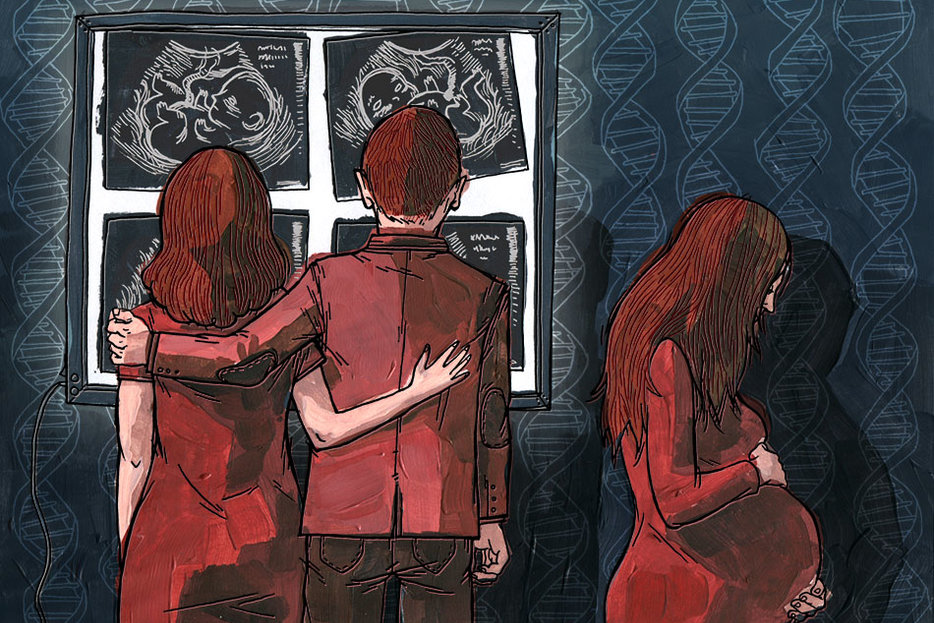
Times of Malta 23 April 2018
The ongoing news concerning the murder of Daphne Caruana Galizia represents a huge taint on Malta’s governance. The way the government is acting is more in sync with that of illiberal democracies in Hungary, Poland and Turkey, where institutional autonomy is being dismantled to protect political oligarchs.
Amid this dark cloud over democracy, Joseph Muscat’s government is trying to rush through legislation and avoiding thorough public debate and scrutiny. IVF and surrogacy are the most recent examples.
The government is stating that in vitro fertilisation (IVF) will be accessible to more than just different-sex couples; infertile couples will have increased chances to conceive a child. Consequently, embryo freezing will be permitted, prospective parents can have extra embryos frozen for five years and these may be consequently given up for adoption.
The proposed law will also allow sperm and egg donations, as well as surrogacy. As things currently stand, surrogacy is illegal, and doctors involved in IVF or embryo transfer can be subjected to a fine ranging from €5,000 to €15,000 and a maximum three-year prison sentence. The surrogate mother’s punishment is decreased by one or two degrees.
The proposed law will keep such punishments in place for surrogacy against payment, but it can allow ‘altruistic’ surrogacy. In turn, this part of the law will be subject to ‘public consultation’ and a legal notice.
Judging by this government’s standards for consultation, my hopes aren’t too high.
Pierre Schembri Wismayer, a professor who was involved in the drafting of the existing IVF legislation is dubbing the proposed changes “chilling”, “irresponsible” and “as tantamount to a document prepared over the weekend by somebody high on energy drinks” (April 15).
He raised concern over the possible ‘blackmail’ of couples applying for IVF treatment to give away their own embryos for adoption if they are not required. He also raised concern that embryologists would select the best two embryos out of the permitted five for IVF treatment for a higher chance of success.
In his words, “the rest, which will be frozen, will in actual fact be less healthy embryos. This will further reduce the chance of these embryos being adopted”.
He also raised concern about contradictions in the proposed text and lack of safeguards, which are not surprising in a country with poor checks and balances. This could have implications in areas such as children’s rights and health.
I augur that other experts in the medical and social sciences speak up on the proposed legislation. Irrespective of one’s ideological and ethical positions on IVF, surrogacy and related issues on the Malta parliamentary agenda, I believe that broad, informed, non-banalised and comprehensive debates are required within the public sphere before laws are rushed through.
I, for one, have strong ethical reservations on surrogacy, and this view is shared by a wide range of ideologies ranging from feminism to Catholicism. In many European countries it is banned, while some others permit the so-called ‘altruistic’ model. The European Parliament has called on States to ban it.
In my reading surrogacy legitimises the commodification of the body through exploitation and abuse. The woman’s womb becomes a factory, the mother cannot be called ‘mum’ and the rights of the child are practically inexistent. The client comes first. This argument even holds for ‘altruistic’ surrogacy.
Indeed, how would we know if such surrogacy is really altruistic, that no pressure has taken place and that no money is being paid in a clandestine way? And why is the government assuming that no-cost surrogacy is not exploitative? Is the government consulting research on the demographics of surrogate mothers?
Does it look into the possibilities that the latter may have less social power than their clients?
The plot thickens. What if the surrogacy doesn’t go according to plan and the prospective child does not fulfill the expectations of the clients?
To me it is inconceivable that the same government that calls itself feminist is practically brushing aside ethical concerns and avoiding informed debate on such matters. We are moving towards a soulless State where the government’s niche products involve the commodification of everything.
The human body is the latest addition to citizenship, nature and public land.